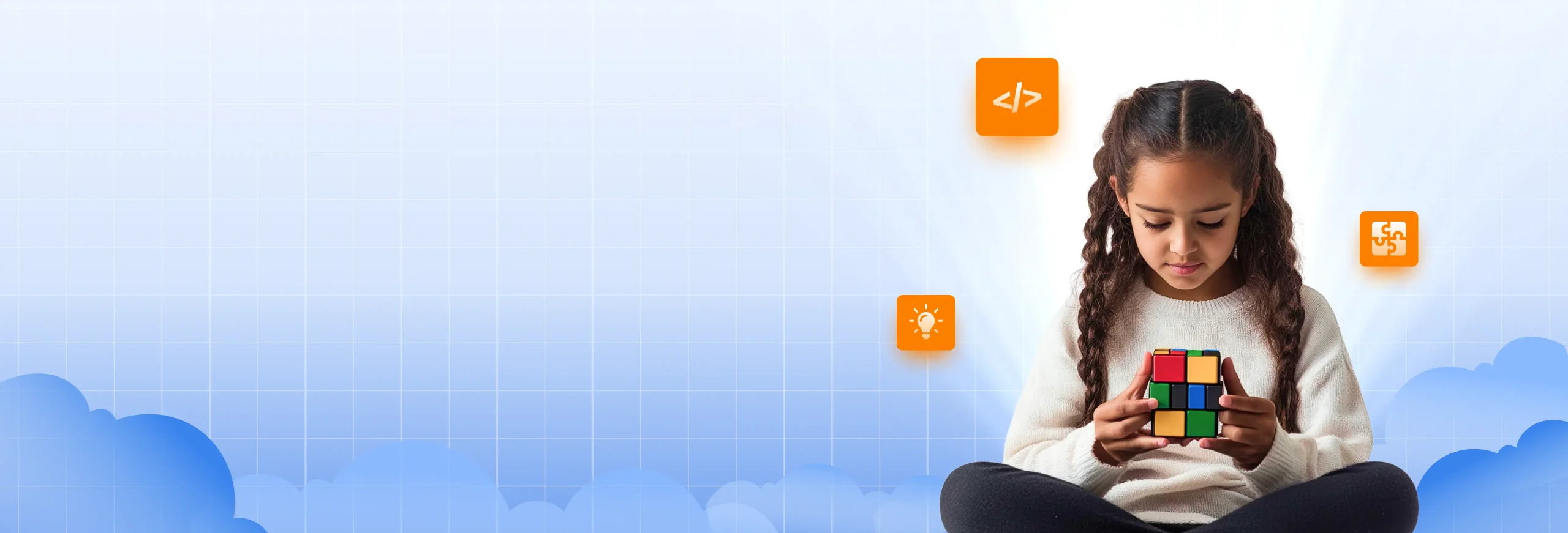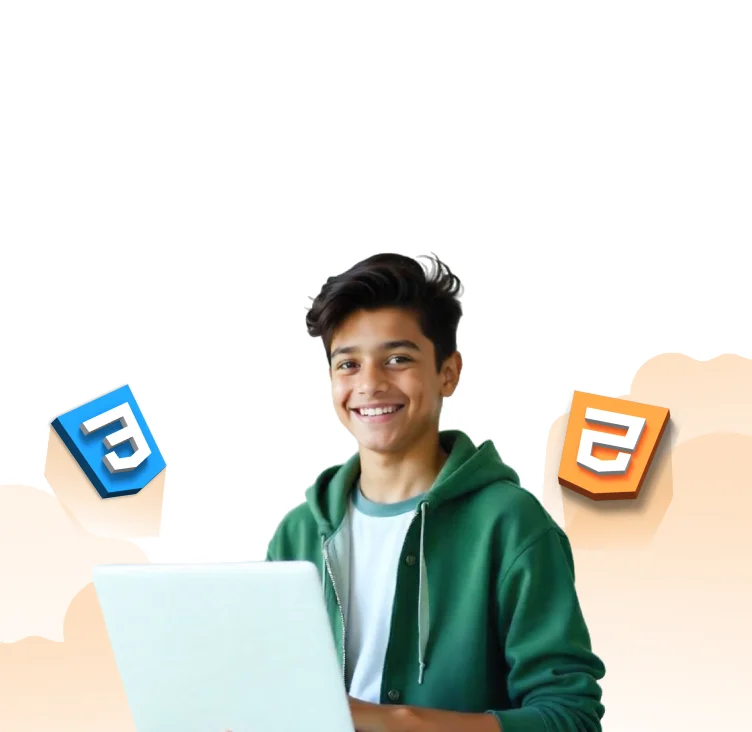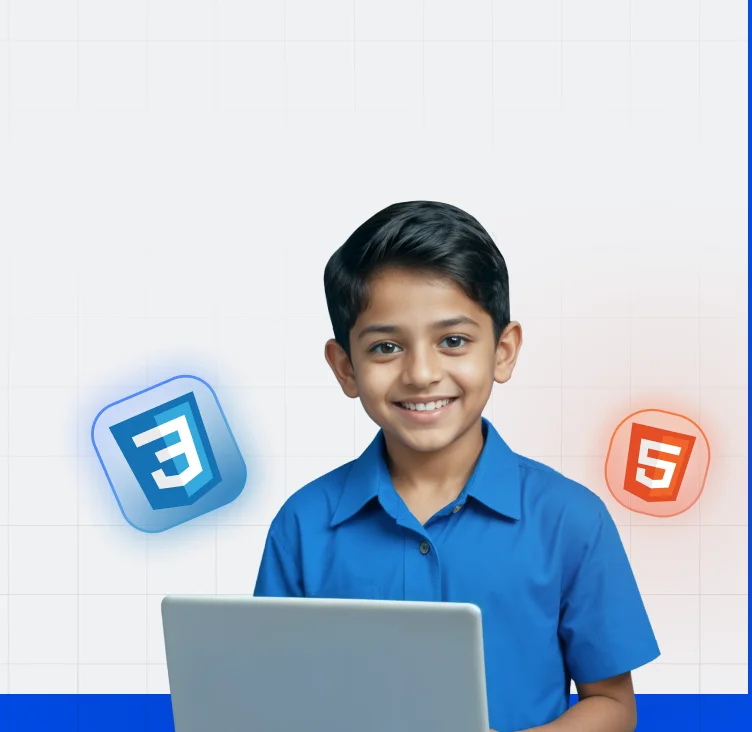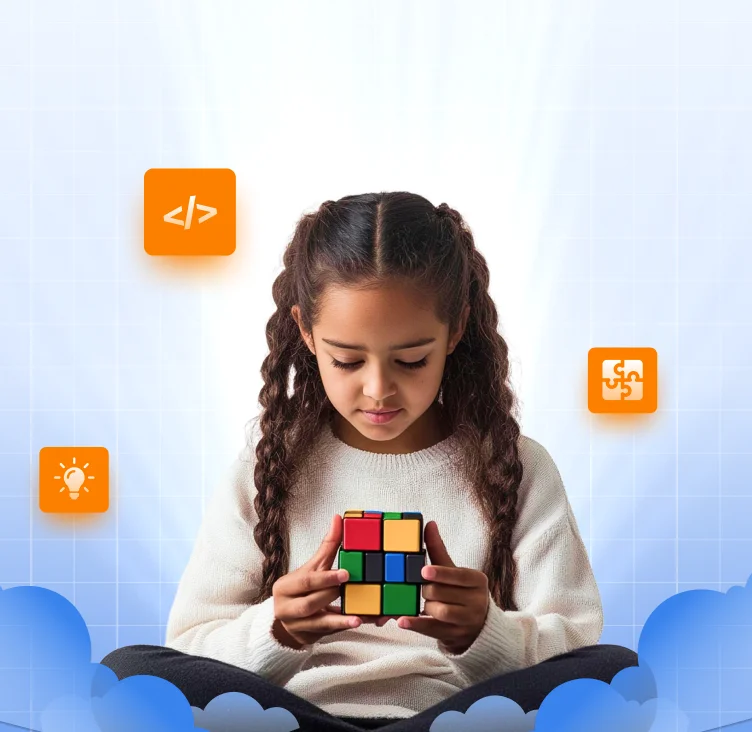How Coding Helps Kids Build Problem Skills
By Srinithi SankarHave you ever noticed how kids naturally ask “Why?” or “How?” when faced with something new? This innate curiosity is the foundation for problem-solving, a skill that becomes even more powerful when combined with coding. How coding helps kids build problem-solving skills is not just about writing lines of code, it’s about understanding problems, analyzing solutions, and crafting innovative outcomes.
Let’s explore how coding helps kids sharpen their problem-solving abilities, how the process of coding mirrors the problem-solving journey, and how this skill extends beyond the computer screen to shape well-rounded individuals.
What are all the benefits of using coding to teach problem-solving?
Coding opens up a world of opportunities for kids to learn, grow, and thrive. Here are some of the key benefits:
Encourages Logical Thinking
Coding teaches kids to think step-by-step. When solving a coding problem, children learn to break down complex tasks into smaller, logical steps, a technique they can apply to challenges in any area of life. This is a crucial part of problem-solving through programming for kids.
Promotes Creativity
Contrary to the misconception that coding is rigid, it’s actually a playground for creativity. Kids use coding to design games, animations, and apps, requiring imaginative thinking to bring their ideas to life. Creative thinking with coding allows children to innovate and explore their potential.
Builds Resilience
Bugs and errors are inevitable in coding. These “mistakes” are actually learning opportunities that teach kids perseverance and patience. They learn to analyze what went wrong and how to fix it, instilling a growth mindset.
Develops Analytical Skills
Coding helps kids evaluate multiple solutions to a problem and choose the most efficient one. This decision-making process hones their analytical abilities, useful in both academics and real-life scenarios.
Fosters Collaboration
Coding projects often involve teamwork, where kids brainstorm ideas, divide tasks, and work together to complete a project. This builds communication and cooperation skills, making coding activities for problem-solving even more impactful.
Prepares for Future Careers
Even if a child doesn’t pursue a tech-related career, the problem-solving mindset developed through coding will serve them in fields like medicine, law, business, and more.
The Step-by-Step Process of Problem-Solving with Coding
The process of solving problems through coding mirrors real-world problem-solving. Here’s a step-by-step breakdown:
Identify the Problem
The first step is understanding what needs to be solved. For example, a child might be tasked with creating a program that calculates the area of a triangle.
Analyze the Problem
Next, they analyze the requirements: What inputs are needed? What formula should be used? What should the output look like?
Plan a Solution
Kids then create a plan. This might involve drawing flowcharts or writing pseudo-code to map out the solution before diving into the actual coding.
Break It Down
A large problem can seem overwhelming, so kids learn to divide it into smaller, manageable parts. For example, they might first code for input collection, then the formula, and finally the output display.
Code and Implement
This is where the magic happens. Kids write the actual code, translating their plan into a working program. Problem-solving skills for kids are sharpened during this transformative process.
Test and Debug
Testing ensures the code works as intended. If errors appear, debugging teaches kids to identify and fix them, making it an essential part of the process of problem-solving through programming for kids.
Optimize and Reflect
After achieving a solution, kids review their code for efficiency. They learn to refine their work, fostering a mindset of continuous improvement.
Practical Ways Coding Develops Problem-Solving Skills
Game Development
Creating games is an excellent way for kids to apply problem-solving skills. They think through user experiences, design challenges, and write code to bring their vision to life. Creative thinking with coding is at the heart of game development.
Robotics and Automation
Using coding to program robots or automate tasks teaches kids about real-world applications of problem-solving. For instance, they might code a robot to navigate a maze or sort objects.
Debugging Challenges
Debugging involves identifying errors and figuring out how to fix them. It’s a hands-on way for kids to develop critical thinking and logical reasoning.
Storytelling through Animation
Kids use coding platforms to create animated stories, combining creativity with logic to craft narratives that work seamlessly. This process helps develop problem-solving skills for kids as they figure out how to sequence events and make their stories interactive.
Real-World Problem Solving
Coding empowers kids to address everyday problems. For instance, they could code an app to remind them about homework deadlines or track daily screen time. These coding activities for problem-solving showcase how coding extends beyond screens.
Learning tech has never been this fun!
Say goodbye to dull quizzes and hello to Buzzer, the ultimate computer science and technology MCQ game for kids! Pick your favorite topic, hit the buzzer, and tackle exciting gamified questions. Whether you’re playing for fun or competing, every round is an adventure. Think fast, answer smart, and climb the leaderboard. Play Buzzer now!
Conclusion
How Coding Helps Kids Build Problem-Solving Skills is far more than a technical ability; it’s a powerful tool for developing critical problem-solving skills that benefit kids in all areas of life. By learning to code, children gain the confidence to face challenges, the creativity to innovate, and the perseverance to succeed. Beyond problem-solving, coding fosters essential non-technical skills like communication, collaboration, and adaptability, making it a well-rounded educational choice.
Want to give your child a head start in coding? With HackerKid, they’ll follow a well-structured path built by experts, engage in fun, hands-on learning, and build real projects along the way. No confusion, no aimless browsing, just the right guidance at the right time.
Fill out the form for a personalized roadmap and start your child’s tech journey today!
FAQs
1. At what age is it ideal for kids to begin learning coding?
Kids as young as 7 can start learning coding. Starting early gives them more time to build foundational skills, which are essential for mastering problem-solving through programming for kids. It also nurtures creativity and equips them with the confidence to face challenges both in coding and in real-life situations.
2. Do kids need prior technical knowledge to start coding?
Not at all! Many beginner-friendly platforms like HackerKID are designed to teach coding concepts from scratch, making them accessible to all kids. These platforms use interactive and engaging methods, ensuring that children can start coding without any prior technical experience.
3. How can coding benefit kids who don’t want to pursue tech careers?
Coding develops universal skills like critical thinking, creativity, and teamwork, which are valuable in any career or field.
4. How does coding benefit non-technical skills?
Beyond problem-solving, coding enhances creativity, teamwork, and communication skills, which are valuable in all areas of life. It also improves time management and critical thinking, helping kids approach tasks more efficiently and effectively.
5. How much time should kids spend on coding each week?
Starting with 30 to 60 minutes a few times a week is ideal. Gradual increases based on interest help maintain a healthy balance with other activities.
6. Do kids need strong math skills to learn coding?
While math helps with certain coding concepts, it’s not a prerequisite. Many coding languages are designed to be intuitive and accessible for beginners.









